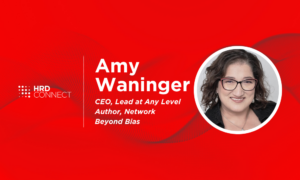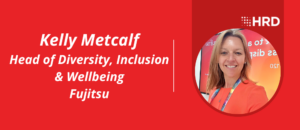How the NHS is championing disability inclusion in the workplace
- 5 Min Read
What can companies do to create a better experience for employees with disabilities and why is it so important? HRD Connect spoke to Paul Deemer, Head of Diversity & Inclusion, NHS, to understand how employees with disabilities are treated, and common mistakes that organisations often make when addressing disability inclusion.
- Author: Louron Pratt
- Date published: Nov 1, 2019
- Categories

The NHS currently employs 1.4 million workers. As one of the UK’s largest employers, the NHS has had to prioritise the working standards of a wide range of employees, including those with disabilities. The NHS created ‘The Workforce Disability Equality Standards’, a set of specific measures that enables NHS organisations to compare the experiences of disabled and non-disabled workers.
“The workforce disability equality standards were built on the success of its predecessor, the workforce race equality standard. The NHS decided that we needed to have a similar focus on disability. These measure the experiences of those respective groups,” said Paul Deemer, Head of Diversity & Inclusion, NHS Employers.
“At the NHS we have an electronic staff record system which holds the records of 1.4 million employees.”
“One-third of the records that we have on that system doesn’t reveal any information about the disability status of employees.”
The NHS don’t know why one in three staff isn’t filling out their disability status. One of its first challenges is making sure that the organisation improves the quality of data around disability. The NHS can only work with 60% of the data to improve disability inclusion.
Unconscious bias is one of the biggest barriers when encouraging staff members with disabilities to be express their opinions.
“Unfortunately, many employees with disabilities may feel that if they disclose their disability, it’ll negatively influence their working experience,” continued Paul.
One of the motivations for tackling challenges around disability inclusion is to try and meet the government target. The government aim to increase the number of people with disabilities in the workplace by a million in the next six years. The NHS wants to contribute to that.
“To do that, we have to dispel some of the myths about how disabled people are treated in the workplace,”
“Alongside the logistics and mechanics of the disability equality plan, we are doing some campaigning to raise awareness for disability inclusion. This will hopefully encourage people with disabilities to apply for jobs within the NHS and be open about their disability status.”
“One of the reasons why we’ve developed the disability standard system is because it’s a reality for many people. Alongside the Electronic Health Record system, each year we run a staff survey going out to 1.4 million people within the NHS.”
The survey investigated areas such as bullying and harassment. Unfortunately, the findings from the NHS staff survey found that disabled staff experience higher levels of bullying and harassment. They also report less satisfaction with appraisals and receive fewer career opportunities.
“The reported reality of life as a disabled member reveals that it isn’t as good as a non-disabled employee. We’ve introduced this standard because we want to address the imbalance in working experiences,” continued Paul.
“Finding this out is a starting point. We’re heavily anticipating that it isn’t going to look good, but we need to start somewhere so we know where we stand.”
Despite 15% of the world’s population being disabled, employers are still apprehensive when talking about the experience of employees with disabilities. The disability competent campaign is an attempt to increase employer’s confidence when talking to their employees about disability issues.
“Disability is a huge spectrum. It’s only in the last few years that people have understood that disabilities can be both physically and mentally related,” continued Paul.
“There’s a lot of work that we’re having to do just to increase people’s understanding of what a disability is.”
Research by Disability Rights UK found that 47% of respondents in their survey aren’t open about their disabilities. It can heavily impact the experience of disabled workers if they feel forced to hide their conditions. If employers don’t find a way to recognise that, they could make the experience worse. Additionally, businesses won’t get the best out of their employees.
“Our ambition is to create a workforce that reflects the communities that we serve. Those communities will respond better to a company that they feel reflects them,” continued Paul.
“I’ve heard stories of people with cerebral palsy who work on reception desks. They’ve said that on several occasions people who have a similar condition will be more inclined to interact with them because they feel that the person is going to be more empathetic towards them.”
There’s a business reason why organisations need to recognise disability. Organisations that regularly deal with customers could have 20% of their target market with various disabilities. Consequently, it’s important to ensure that whole business systems are accessible for a whole range of disabilities.
“Simple things like subtitles go so far. A significant percentage of the population has hearing and sight difficulties. A standard daily task like watching a PowerPoint presentation that you can’t read or hear can be isolating for someone with that sort of disability,” continued Paul.
“That goes for the NHS as well. We send out a lot of information to the public about what services are available to them. We need to make sure that this information is made accessible to all people. We’ll always be looking for ways to refine the overall experience for disabled employees everywhere.”
Many businesses can follow in the footsteps of the NHS in prioritising disability inclusion. Companies that do this will experience an influx of exceptional talent working to the best of their ability from all backgrounds.










